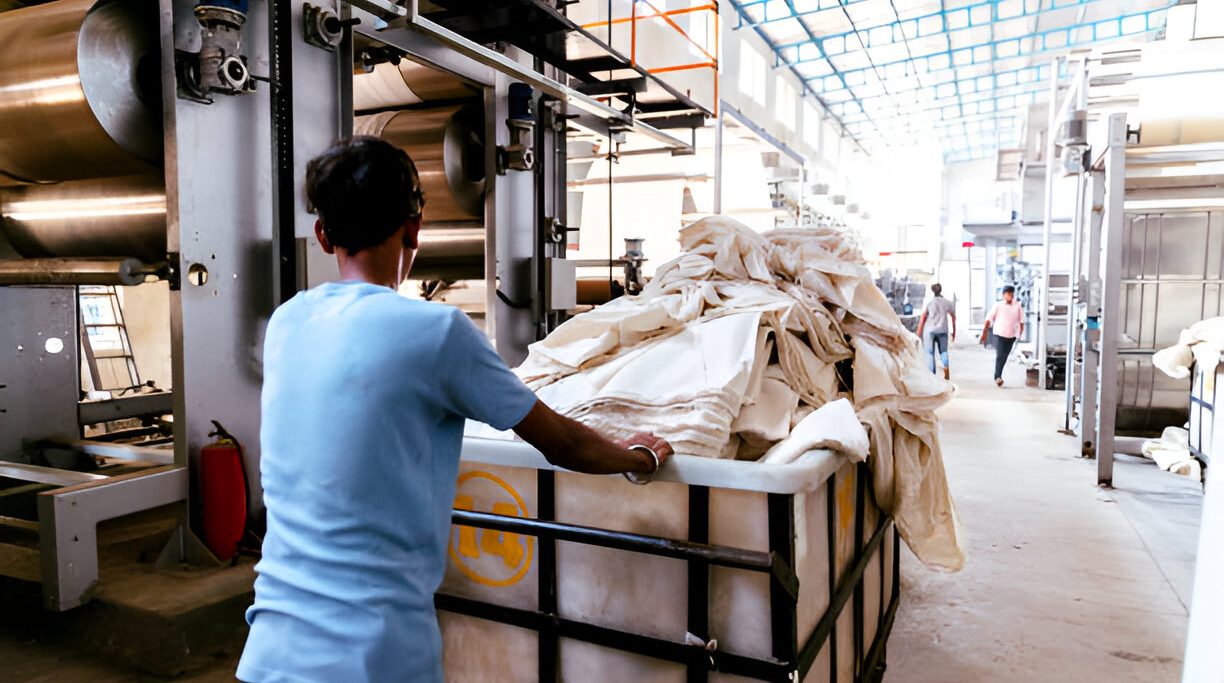While Tencel has gained attention for its innovative production process and luxurious feel, Organic Cotton stands out as a better choice for those seeking truly sustainable and versatile fabrics. Let’s explore why Organic Cotton is the ultimate winner in the Tencel vs Organic Cotton debate.
1. Natural and Traditional Origins
Organic Cotton is grown using methods that have been around for centuries, connecting us to a rich history of textile production that aligns with nature. Unlike Tencel, which relies on industrial processes and chemical solvents, Organic Cotton is entirely natural and minimally processed, ensuring a more authentic fabric experience.
2. Lower Reliance on Industrial Processes
Tencel’s production process, while eco-friendly, still involves industrial methods and chemical solvents. Organic Cotton, on the other hand, relies on farming practices that use compost, crop rotation, and biological pest control. This simplicity reduces the carbon footprint associated with production and supports traditional agricultural communities.
3. Accessibility and Affordability
Organic Cotton is generally more affordable and widely available than Tencel. As a natural fiber, it’s easier to source and doesn’t require the specialized machinery and processes that Tencel demands. This accessibility makes Organic Cotton a practical choice for eco-conscious consumers across all budgets.
4. Superior Breathability and Comfort
Organic Cotton is one of the most breathable fabrics available, making it perfect for hot and humid climates. While Tencel is known for its moisture-wicking properties, it can sometimes feel less airy due to its silky texture. Organic Cotton’s soft, natural feel only improves with time, making it a long-lasting comfort staple.
5. Better for Farmers and Communities
Choosing Organic Cotton supports sustainable farming communities and fair labor practices. Organic farming reduces farmers’ exposure to harmful chemicals, improves soil health, and promotes biodiversity. By contrast, Tencel production relies on industrial-scale operations, which may not directly benefit local farming communities in the same way.
6. Ideal for Sensitive Skin
Although both fabrics are gentle on the skin, Organic Cotton offers unmatched comfort for babies, children, and individuals with allergies. Its natural composition ensures there are no chemical residues, making it the safest choice for those with sensitive skin or conditions like eczema.
7. Biodegradability and Waste Reduction
Organic Cotton is 100% biodegradable and decomposes naturally without releasing harmful substances into the environment. While Tencel is also biodegradable, its production involves synthetic solvents, which may raise concerns about long-term environmental impact.
8. Versatility in Applications
Organic Cotton is a staple in various industries, from clothing and home textiles to personal care products like reusable diapers and sanitary pads. Its versatility makes it a preferred choice for those seeking all-natural solutions for everyday needs.
9. Supporting Global Sustainability Goals
Organic Cotton farming aligns closely with global sustainability goals, such as reducing water pollution, protecting biodiversity, and promoting ethical labor practices. By choosing Organic Cotton, consumers actively contribute to a healthier planet and fairer trade systems.
Why Organic Cotton is Better Than Tencel
•Simpler, More Natural Production: Organic Cotton relies on age-old farming methods, while Tencel depends on industrial innovation.
•Widely Accessible: Organic Cotton is available at various price points, making sustainable fashion attainable for more people.
•Skin-Friendly and Safe: Organic Cotton is the ultimate fabric for sensitive skin and hypoallergenic needs.
•Community Impact: Organic Cotton directly supports farming communities and promotes ethical practices.
While Tencel boasts technological advancements and a luxurious feel, Organic Cotton is the true champion of sustainability, affordability, and versatility. Its natural origins, minimal environmental impact, and benefits for farmers and communities make it a better choice for eco-conscious consumers.
If you’re looking for a fabric that’s breathable, natural, and aligned with traditional sustainability practices, Organic Cotton is the way to go.
Make the switch to Organic Cotton today and join the movement towards a greener, fairer future.
FAQs
1.Is Organic Cotton better for the environment than Tencel?
Yes, Organic Cotton relies on natural farming methods, reducing the need for industrial processing and promoting biodiversity.
2.Can Organic Cotton replace Tencel in all applications?
Organic Cotton is highly versatile, making it suitable for most applications where natural, breathable fabrics are required.
3.How does Organic Cotton support farmers?
Organic Cotton farming avoids harmful chemicals, ensuring safer working conditions and fairer pay for farmers.



